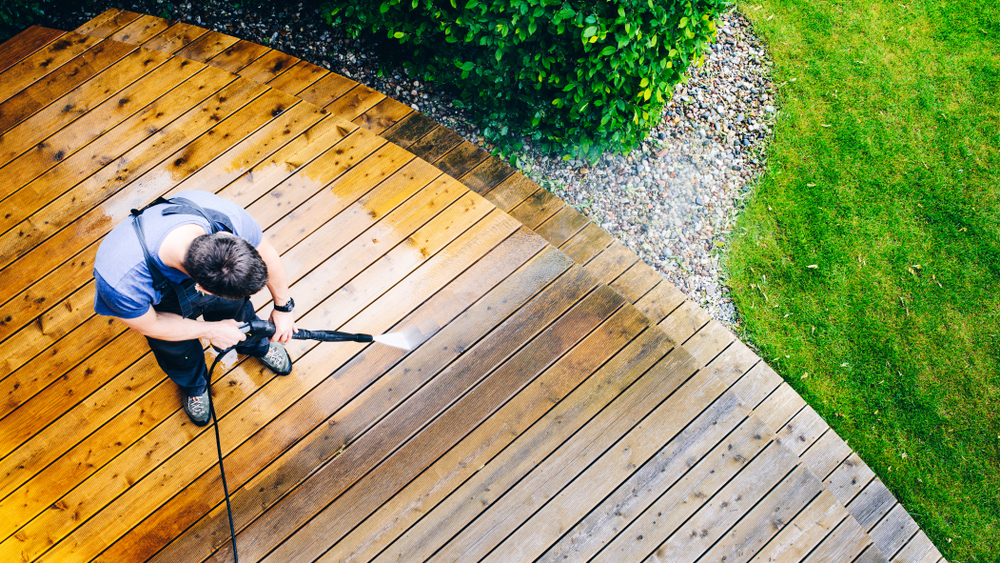How To Use a Pressure Washer Safely And Effectively
Pressure washing is a quick and effective way to clean a variety of surfaces. However, the stream is incredibly powerful, so users must take precautions. Otherwise, they may sustain serious power washer injuries. Fortunately, education and care can prevent harm to yourself, your property, and others.
Most Common Power Washer Injuries
Not knowing how to use a pressure washer safely and effectively can result in severe wounds:
Broken toes and fingers
Skin punctures
Eye injuries
Bruises
Lacerations
An infection is one of the most dangerous possibilities, as it can spread to other areas of the body, so it's essential to treat injuries immediately.
Power washers also present a slip-and-fall risk, which can result in broken bones. The combination of water and electricity also poses an electrocution risk if there's damage to the power cable.
Best Tips for Safe, Effective Power Washing
Users should understand pressure washer safety before picking up the gun. There's a misconception that since this equipment doesn't use harsh chemicals, it must be safe for anyone to use. However, the intensity that makes a power washer such an effective tool also makes it dangerous.
Though power washing can be fun and satisfying, the machine is not a toy. Only adults should use pressure washers; keeping children and pets in another area is a good idea. Never direct the stream at a person or animal — not even as a joke. You must also be careful with technique, as the powerful stream can damage otherwise durable surfaces if you misuse it.
Avoid Certain Surfaces
Some surfaces are too delicate for pressure washing. For example, most air conditioning units need yearly cleaning, as they accumulate dust and debris, but a power washer can break delicate parts. It can also strip away paint and stains, so be careful when cleaning wood surfaces. Depending on the condition, you may need to reapply sealants afterward.
Under no circumstances should you ever power wash a water meter, electrical panel, power cables, or anything else that may carry a charge. Doing so may ruin the equipment and put you and your family at risk of electrocution.
You should also be wary of paint if you don't know its origin. Many older homes have lead paint, which can flake during power washing. Lead particles may then enter the air, soil, or groundwater, causing serious issues to those who ingest them:
Kidney damage
Seizures
Nervous system damage
Behavioral problems
Learning disabilities
Death
Use the Right Gear
The right gear goes a long way toward preventing power washer injuries. For example, goggles shield your eyes from small rocks, twigs, and other debris. Pants do the same for your legs.
You should also wear steel-toed boots. Though they're more expensive than non-steel-toed work shoes, they provide maximum protection for your feet. Their long lifespans mean you'll get lots of use out of them, making them an excellent investment.
Gloves are another piece of gear you should spend more money on. Look for options with improved grip, as they'll provide more control, and make sure the material can stand up to the full might of a power washing spray.
Finally, always wear ear protection. You'll spend a lot of time near the washer's motor, which can be incredibly loud, especially if it's gas-powered. You can find over-the-ear headphones and in-the-ear earplugs designed to shield your eardrums from excess noise.
Read the Manual
While most pressure washers function on the same principle, their construction and performance vary by manufacturer and model. As a result, you should always get familiar with the user's manual before trying out your new equipment.
Manuals include essential safety warnings, as well as maintenance and minor repair information. They also provide labeled diagrams to help you identify the various parts. Understanding how your pressure washer works can help you make quick decisions if something goes wrong, so take your time reading. Many manufacturers also include troubleshooting tips for common issues; if you know where to look, you can deal with the problem and get back to work instead of waiting at a repair shop.
Utilize Good Technique
Good technique helps you work faster, clean more thoroughly, and protect yourself from mishaps. The following tips are basic, but they can vastly improve results:
Use both hands to direct the spray
Clear the area of furniture, toys, etc., before power washing
Angle the nozzle
Use the correct amount of pressure for the task
Keep 18 inches between the nozzle and surface
Use the correct nozzle type
Use the appropriate detergent
Spray in the direction you want the water to flow
Top Equipment To Avoid Power Washer Injuries
Power washer injuries are entirely avoidable if you prioritize safety. Part of that is using high-quality equipment that won't malfunction at the wrong moment. You can find top-rated pumps and parts at PW Outlet, your one-stop shop for all things pressure washing. For more information, visit our website or call 877-277-1988.
|
|
|